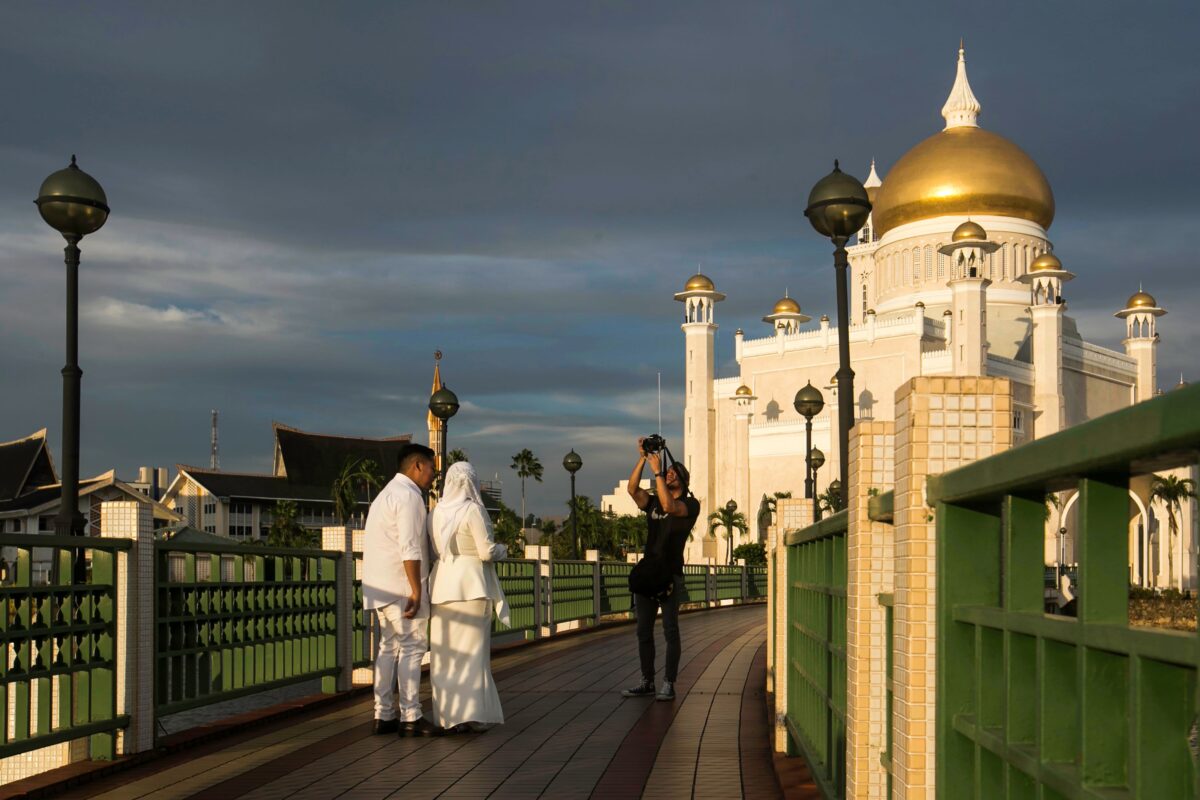
Brunei Darussalam, more commonly known as Brunei, has transformed its economy for the better following the discovery of oil and gas in 1929. However, as the world starts to turn away from fossil fuels, the country is starting to diversify its economy: we explore fintech’s role in Brunei’s new economic plan.
Gas and oil have allowed the country to prosper for many years, allowing its population to obtain a high standard of living and adult literacy rate. This has made it one of the most successful economies in not just Southeast Asia, but the entirety of Asia. In fact, the gross domestic product (GDP) per capita of Brunei is over $37,000. This makes it the second-highest Association of Southeast Asian Nation (ASEAN) member in terms of GDP, behind only Singapore.
While oil and gas remain the backbone of Brunei’s economy, since 2010, the non-oil and gas private sector has grown by 2.6 per cent on average, according to Asean Briefing. As a result, the government of Brunei has already identified five sectors which can boost its economy’s growth. In 2021, it released its blueprint for a future which would rely on oil less and more on food, tourism, information and communications technology (ICT) and other services.
This blueprint builds on the Wawasan Brunei 2035, published in 2008. Wawasan Brunei 2035 is the country’s national economic plan which looks to diversify and develop Brunei so that by 2035, it will be recognised around the world for the achievements of its people, and its dynamic and sustainable economy with a top 10 GDP globally.
Adoption of Islamic finance
In 1991, the first Islamic financial institution was established and since then, Islamic finance‘s popularity has grown, with it now playing a major role in the country’s market. It contributes to 58 per cent of the nation’s market share, totalling BND13.86billion ($10.59billion). Some of the key players in the financial services sector (and also Sharia compliant) include:
Bank Islam Brunei Darussalam (BIbD)
BIBD At-Tamwil (BIBAT)
Takaful Brunei Am (TBA)
Takaful Brunei Keluarga (TBK)
BIBD Securities (BIBDS)
Government support
From a financial services standpoint, the country is dominated by banks. Although there are at least seven commercial banks, only two of them compete for the majority of users.
The Brunei government has played its role in advancing the financial sector. Between 2014 and 2016, it established a real-time gross settlement system and an automated clearing house.
At the same time in 2016, the Central Bank of Brunei, the Brunei Darussalam Central Bank (BDCB) published the Brunei Darussalam Financial Sector Blueprint 2016 – 2025. The blueprint was created to support the Wawasan 2035 goal of transforming Brunei into a diversified, dynamic and sustainable economy. The five pillars in the blueprint are:
Monetary and financial stability
Competitive and innovative financial institutions and services
Robust and modern infrastructure
Enhanced international integration
Human capital development
In 2020, the government also announced the Digital Economy Master Plan 2024 to complement the Financial Sector Blueprint. The plan has multiple projects within it which will propel Brunei to become a smart nation through digitisation. Some projects include:
National Information Hub (NIH) Project
Digital Identity Project
Digital Payment Hub Project
Development of fintech
In 2017, the BDCP created the Fintech Regulatory Sandbox Guidelines and the Fintech Office in order to help develop firms in the country. Ensuring they had the best help possible to innovate, in 2020, the BDCP amended the guidelines with a more streamlined application assessment time.
Digital payments have greatly evolved in the last few years across Brunei, with a variety of different preferences emerging. While traditional payment avenues like credit and debit cards are still offered, mainly via processors such as Visa and Mastercard, other payment trends including QR codes and e-wallets have also come to the fore.
In fact, in the last five years, digital payment transactions have increased by 87.8 per cent. This was also aided by the fact the country has greatly adopted the internet, with 98.1 per cent of the population having access to it.
Some of the popular fintechs in the country include Quick Pay, Progresif Pay and Pocket. Some other emerging fintechs and startups in Brunei are BruPay, Moneymatch, and Beep Digital Solutions.
Digital transformation isn’t just limited to payments either. For example, last year, BIBD announced its plans to be a digital-first bank. Through a unified application method the bank wants to have most of its customers relationships done digitally by the end of the decade. Also, the bank launched its new Olive mobile banking app; giving digital signature and digital contracts, as well as utilisation of know-your-customer (eKYC) technology through non-face-to-face customer onboarding.
While still in its nascent stage, fintech can continue to help further diversify Brunei’s economy for the future.
The post A Move Away From Oil and Gas: Fintech’s Role in a More Diversified Brunei Economy appeared first on The Fintech Times.
